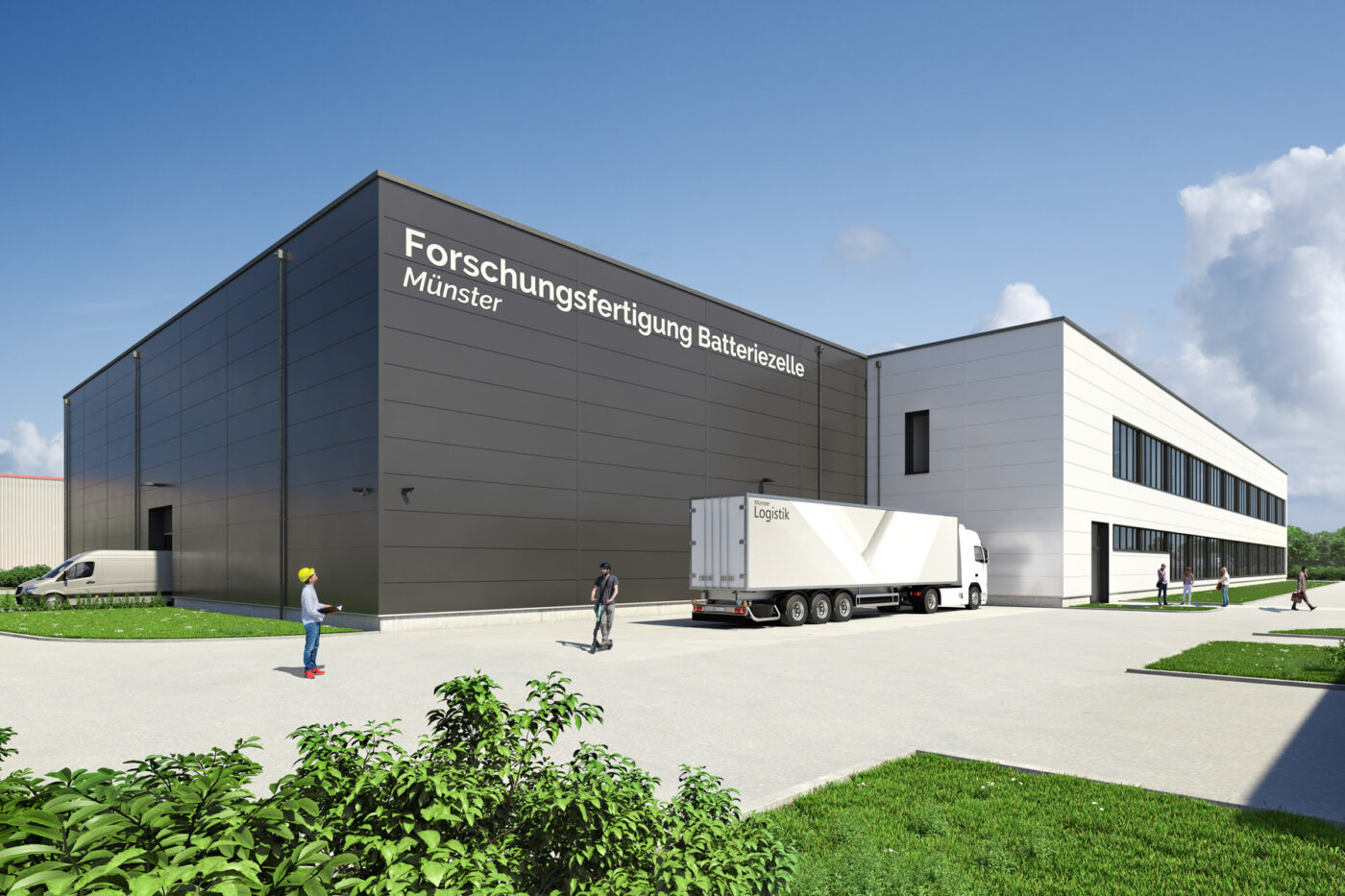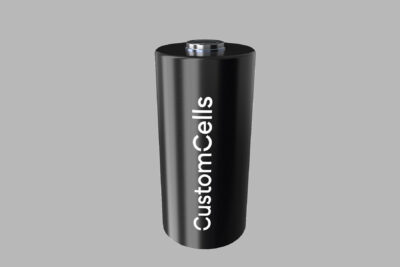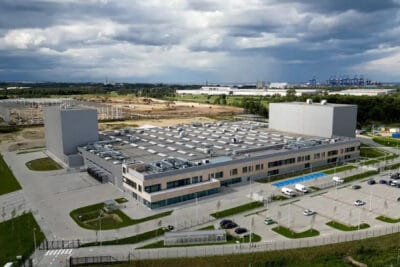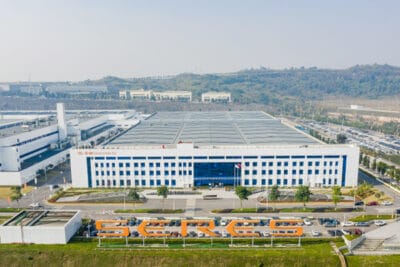Battery cell production research: FFB PreFab opens in Münster
At least that’s how the Fraunhofer Research Institution for Battery Cell Production FFB puts it in the press release on the opening of the PreFab. To clarify the differences between PreFab and the sparser FFB Fab: PreFab offers around 6,800 square metres of research space. The FFB Fab will provide 20,000 square metres of additional production and research space and enable industry-oriented production research and development in the gigawatt range with plant technology on a large industrial scale. In an interview with electrive, RWTH Professor Achim Kampker, who is also a member of the FFB institute management team, explains exactly what work will be carried out in the PreFab and what will be done in the FFB Fab.
Both the PreFab and the larger facility are located in the Hansa-BusinessPark in Münster. A consortium centred around the Fraunhofer IPT was awarded the contract for battery cell research production in 2019 – following competition with numerous other locations, some of which are much closer to the German automotive industry, such as Ulm. FFB Münster had already started its research activities in 2021, and work can now move to the final location.
Partners can use FFB test areas
In research production, a sample line for complete battery cell production on a smaller scale will enable the FFB to support its industrial partners in testing and implementing new battery cell concepts and manufacturing processes. The research factory will focus on the production of pouch cells and prismatic cells for research purposes, which are used in e-cars, medical technology and smart devices, among other things. Later, round cells will also be trialled.
The German Federal Ministry of Education and Research is funding the development of battery cell research production with up to 500 million euros. The state of North Rhine-Westphalia is providing up to 320 million euros for land and new buildings and has thus recently increased its financial commitment from the previous 180 million – at least this is the sum recently mentioned by Tagesspiegel Background. With the higher NRW commitment, “the buildings are to be optimally aligned with the further developed needs of the FFB.”
Federal Research Minister Bettina Stark-Watzinger also travelled to Münster for the opening of the facility. “Battery technology is an important key technology of the future. In Münster, we are building the battery cell production of tomorrow on a large scale. This is a milestone on the way to a technologically sovereign, competitive and sustainable battery ecosystem,” said the Minister. “The FFB will be a globally unique innovation instrument with which industry and science can equally test innovative battery technologies and develop new battery cell concepts and efficiently bring them to market maturity. The FFB relies on our excellent science and the core competencies of German industry, such as mechanical and plant engineering, the automotive industry and the chemical industry, to develop innovative battery cells and corresponding production processes.”
The FFB is one of the few battery research projects to have survived the cut in funding at the beginning of the year with virtually no losses. “Even if the Fraunhofer FFB and the development of research production are not directly affected – as far as we know at the moment – the situation is making our work more difficult. A battery ecosystem that has been successfully established and grown in recent years for innovations from research and for the training of skilled workers is at risk of being deprived of its foundation,” says Kampker. One thing is clear: companies should be able to use the FFB to test and scale up their research work. If this research work is cancelled due to a lack of budget, this could also have an impact on the benefits of the FFB.
There is no mention of this in the press release announcing the opening of the PreFab. “With the opening of the PreFab, we are reaching an important milestone for the Fraunhofer-Gesellschaft, the FFB battery cell research centre and, above all, for sustainable and competitive battery production in Europe. With innovative machine technology, we are building a bridge between research and industry for sustainable European battery production,” says Holger Hanselka, President of the Fraunhofer-Gesellschaft. “My sincere thanks go to the cooperation with industry, politics and our partners, including the Federal Ministry of Education and Research, the state of North Rhine-Westphalia, the city of Münster and our site partners, as well as my colleagues at the Fraunhofer Institutes. Together, we have made significant progress in battery research and are taking an important step towards a sustainable future.”
fraunhofer.de (in German)





0 Comments